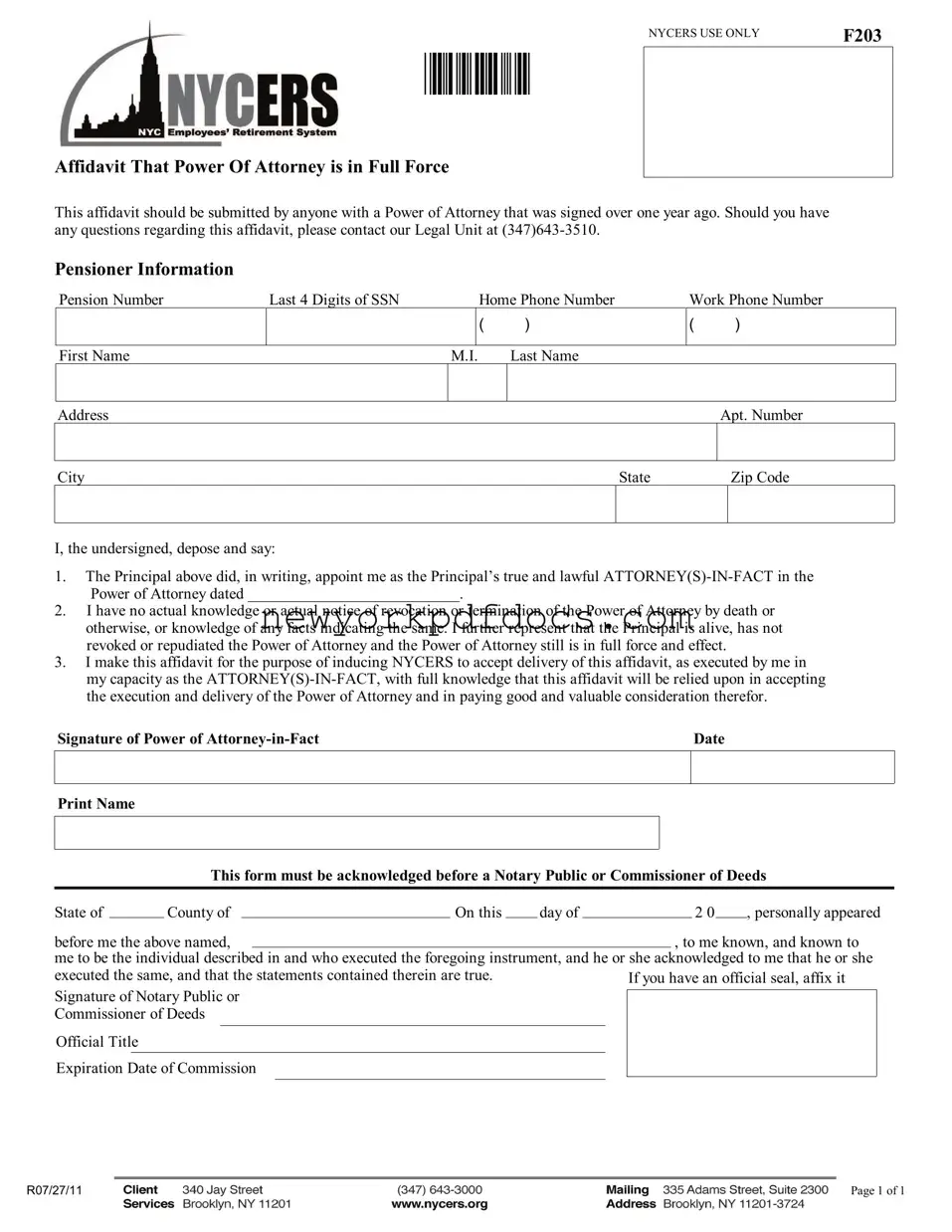Free Nycers F203 Form
The NYCERS F203 form is an affidavit that confirms a Power of Attorney is still valid and in full effect. This document is essential for individuals who have held a Power of Attorney for over a year and need to affirm its ongoing authority. Proper completion and notarization of this form are crucial for ensuring compliance with NYCERS requirements.
Open My Document Now

Free Nycers F203 Form
Open My Document Now
Your form isn’t finalized yet
Edit, save, and download Nycers F203 online with ease.
Open My Document Now
or
⇓ Nycers F203 PDF

